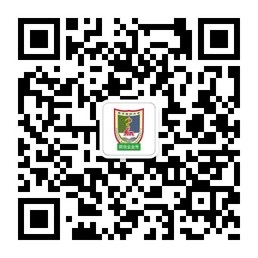尊敬的学员:您好!
我校与美国佛罗里达大西洋大学(FAU)合作开设的国际课程《21世纪的护理领导力》(第四期)时间为2021年8月16–25日(上课时间详见课程进度表),现就有关事项通知如下:
一、关于课程
本课程主要是给护理硕士研究生、护理本科留学生等提供有效的护理领导和管理能力的基本知识。主题包括如何领导、促进和管理其他人员,以最大限度地提高他们的工作满意度、有效的组织能力和丰硕的工作成果。主要着重于强调对他人的尊重、以病人为中心的护理、护理安全和护理质量。
在完成此课程后,学生能够达到下列目标:
1.阐明护理领导力和护理管理之间的关系,了解哪些核心价值观会影响护理领导力;
2.阐明建立团队的领导力思维的策略;
3.学会解释和应用护理领导力和管理的理论;
4.学会应用领导技巧来管理团队,建立好专业和个人的关系并取得成功;
5.使自己和团队都了解、认识和培养有效的领导和管理素质;
6.在实践中有效使用数据来作为决策和专业团队管理的依据和指导。
教学手段:讲课形式、课堂讨论、小组讨论、小组发言和报告。
授课形式(线上):课堂授课、讲座和课堂讨论。请关注课程微信群与QQ群以获取课程密码及开课前准备工作信息。
主讲教师:Dr. Christine L. Williams, RN, DNSc教授,美国佛罗里达大西洋大学克里斯丁学院护理博士研究生委员会主任。
二、参加要求与考核方式
1.要求学员全程参加听课和学习,并签到。
2.学习过程中,积极参与课堂活动,踊跃发言。
3.本课程将全程录屏,请学员于课程开始15分钟前登录线上会议,使用统一背景模板,请遵守课堂礼仪及文明用语。
3.采用过程性与总结性考核评价方式,课程结束后没有专门的书面考试,依据考勤与课堂发言、小组讨论和小组汇报三个方面,综合评价每位学生。
4.通过本次课程学习,考核合格者可以取得学分(在校注册的研究生),授予太阳成集团tyc151cc国际合作与交流处、太阳成集团tyc151cc研究生院共同签发的培训合格证书。
如有问题,请于周一至周五联系课程助教朱展慧,邮箱1037254346@qq.com,也可以致信学院杨如美老师,邮箱rumeiyang@njmu.edu.cn详询。
附:课程进度表
UNITS | DATE/TIME | TOPIC | Reading Assignment | Faculty | Tencent meeting ID |
1 | 8/16/2021 19:00-20:15 | Introductions Course overview: Review syllabus, assignments, grading Choosing a Research Topic and Team Leader | Nelson-Brantley, H.V., Chipps, E. (2021). Implementation Science and Nursing Leadership: Improving the Adoption and Sustainability of Evidence-Based Practice. JONA, 51(5), 237-9. | Dr. Williams | ID:353 520 789 |
2 | 8/16/2021 20:25-21:30 | Analysis of Leadership and Management in Nursing | Xu J-H. (2017). Leadership theory in clinical practice. Chinese Nursing Research, 4, 155e157. | Dr. Williams | ID:353 520 789 |
3 | 8/17/2021 19:00-20:15 | Leadership and Management Theories | Cummings, G.G., et al. (2021). The essentials of nursing leadership: A systematic review of factors and educational interventions influencing nursing leadership. International Journal of Nursing Studies, 115. https://doi.org/10.1016/j.ijnurstu.2020.103842 | Dr. Williams | ID:193 613 733 |
4 | 8/17/2021 20:25-21:30 | Evidence-Based Practice in Nursing: Using Evidence to Improve Quality of Care | Cheng, L., Broome, M. E., Feng, S., & Hu, Y. (2017b). Taking Root: A grounded theory on evidence-based nursing implementation in China. International Nursing Review, 65, 270-278. https://doi.org/10.1111/inr.12396 | Dr. Williams | ID:193 613 733 |
5 | 8/18/2021 19:00-20:15 | Searching for Evidence Reading and Analyzing Research Publications | Coster, S., Watkins, M., Norman, I.J. (2018). What is the impact of professional nursing on patients’ outcomes globally? An overview of the research evidence. International Journal of Nursing Studies, 78, 76-83. | Dr. Williams | ID:949 404 872 |
6 | 8/18/2021 20:25-21:30 | Effective Management/Leadership Qualities and Traits | Burkett, L. S. (2016). Team Concepts. Collaborative decision making: Empowering nurse leaders. Nursing Management, 47(9), 7–10. https://doi.org/10.1097/01.NUMA.0000491131.60730.d3 | Dr. Williams | ID:949 404 872 |
7 | 8/19/2021 19:00-20:15 | Organizations and How They Function Theory of Bureaucratic Caring | Turkel MC. (2007). Marilyn Ray’s Theory of Bureaucratic Caring. International Journal for Human Caring, 11(4), 57–74. https://doi.org/10.20467/1091-5710.11.4.57 | Dr. Williams | ID:212 929 020 |
8 | 8/19/2021 20:25-21:30 | Patient-Centered Care and Organization-Centered Care | Jennings, B. M., Scalzi, C. C., Rodgers, I. J. D., & Keane, A. (2007). Differentiating nursing leadership and management competencies. Nursing Outlook, 55(4), 169–175. | Dr. Williams | ID:212 929 020 |
9 | 8/20/2021 19:00-20:15 | Workplace Civility and Quality of Care | MacLean, L., Coombs, C., & Breda, K. (2016). Unprofessional workplace conduct. Defining and defusing it. Nursing Management, 47(9), 30-34. | Dr. Williams | ID:874 252 088 |
10 | 8/20/2021 20:25-21:30 | Leading Teams: Nurse and Interprofessional Teams | Rochon, A. Heale, R., Hunt, E., Parent, M. (2015). Teamwork and patient care teams in an acute care hospital, Nursing Leadership, 28(2), 28-39. doi:10.12927/cjnl.2015.24352 | Dr. Williams | ID:874 252 088 |
11 | 8/23/2021 19:00-20:15 | Management Style and Effects on Quality of Care | Fan, Y., Qiulan, Z., Shiqing, L., Qiujie, L.I. (2016). Construction of a new model of job engagement, psychological empowerment and perceived work environment among Chinese registered nurses at four large university hospitals: Implications for nurse managers seeking to enhance nursing retention and quality of care. Journal of Nursing Management, 24, 646–655. | Dr. Williams | ID:607 130 664 |
12 | 8/23/2021 20:25-21:30 | Self Care, Job Satisfaction, and Performance | Pipe, T. B. (2008). Illuminating the Inner Leadership Journey by Engaging Intention and Mindfulness as Guided by Caring Theory. Nursing Administration Quarterly, 32(2), 117–125. | Dr. Williams | ID:607 130 664 |
13 | 8/24/2021 19:00-20:15 | Healthy and Caring Work Environments | Sun, Y., Xu. L., Shao, H. Wang, H. (2014). China's laws, rights, and administrative structures in occupational safety and health: A comparison with the United States. Journal of Public Health Policy, 35, 455- 469. https://www.jstor.org/stable/43288048 | Dr. Williams | ID:612 130 904 |
14 | 8/24/2021 20:25-21:30 | Group Presentations | NA | Dr. Williams | ID:612 130 904 |
15 | 8/25/2021 19:00-20:15 | Group Presentations | NA | Dr. Williams | ID:110 359 379 |
16 | 8/25/2021 20:25-21:30 | Group Presentations | NA | Dr. Williams | ID:110 359 379 |

